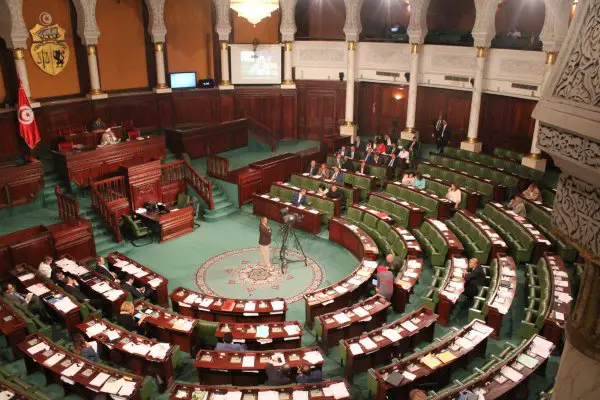Tunisia Officially Lifts Ban On Muslim Women Marrying Non-Muslims
Tags: opinion

By Amanda Froelich Truth Theory
Imagine not being able to marry the love of your life, simply because he or she doesn’t believe in the same God(s) as you. Though this is somewhat unheard of in many Western nations, it was a reality for non-Muslim men in Tunisia until recently.
After decades of enforcing a ban on Muslim women marrying non-Muslims, the Tunisian government secured equal rights for the country’s female population. Presidency spokeswoman Saida Garrach wrote on Thursday: “Congratulations to the women of Tunisia for the enshrinement of the right to the freedom to choose one’s spouse.”
As AlJazeera reports, the announcement came one month after Tunisia’s President Beji Caid Essebsi called for the government to lift the ban, which was implemented in 1973. He argued that the ban violates Tunisia’s constitution, which was adopted in 2014 in the wake of the Arab Spring revolution. The President has since hired a woman lawyer and rights activists to draft revised rules.
Until now, a non-Muslim man was required to convert to Islam and submit a certificate of his conversation as proof to marry a Tunisian woman. Only then would he be allowed to marry her. On the contrary, a Tunisian man has always been allowed to marry a non-Muslim woman. Organizations that campaigned for this recent development said the rules in place undermined the fundamental human right to choose a spouse.
The North African nation is oftentimes considered to be “progressive” in terms of women’s rights, at least when compared to other Arab nations. However, discrimination — particularly in matters of inheritance — persists. Reportedly, daughters are entitled to only half of the inheritance given to son.
In most Muslim countries, “rules” are considered to be tradition and, therefore, holy. In wake of the Tunisian President’s recent proposal, the country’s leading imams and theologians have issued a statement denouncing the ban. They said the President’s decision is a “flagrant violation of the precepts” of Islam.
Though change can be difficult to accept, it is an inevitable happening in this universe. Inevitably, all will come to respect it. The first President of independent Tunisia, Habib Bourguiba, set a new precedent by championing a social code in 1956. His actions set a standard for the region by banning polygamy and granting new rights to women which were otherwise unheard of in the Arab world. Now, President Beji Caid Essebsi is pushing for social change; as a result, he will likely go down in the history books, too.
Read more: The Dalai Lama Speaks The Uncomfortable Truth About Immigration
THIS ARTICLE IS OFFERED UNDER CREATIVE COMMONS LICENSE. IT’S OKAY TO REPUBLISH IT ANYWHERE AS LONG AS ATTRIBUTION BIO IS INCLUDED AND ALL LINKS REMAIN INTACT.
I am Luke Miller, content manager at Truth Theory and creator of Potential For Change. I like to blend psychology and spirituality to help you create more happiness in your life.Grab a copy of my free 33 Page Illustrated eBook- Psychology Meets Spirituality- Secrets To A Supercharged Life You Control Here
Leave Comment: